
Permanent Deputy Prime Minister Nguyen Hoa Binh and Deputy Prime Ministers Tran Hong Ha and Mai Van Chinh co-chaired a meeting to study and consider merging three national target programs - Photo: VGP/Nguyen Hoang
Permanent Deputy Prime Minister Nguyen Hoa Binh and Deputy Prime Ministers Tran Hong Ha and Mai Van Chinh co-chaired a meeting with leaders of relevant ministries and branches on studying and considering the consolidation of three national target programs: New rural construction, sustainable poverty reduction, and socio-economic development in ethnic minority and mountainous areas this afternoon (October 15) at the Government Headquarters.
Attending the meeting were Minister of Ethnic Minorities and Religions Dao Ngoc Dung; Acting Minister of Agriculture and Environment Tran Duc Thang; and leaders of several central ministries and branches.
The National Target Program on New Rural Development for the 2021-2025 period was approved by the National Assembly in its investment policy in Resolution No. 25/2021/QH15 dated July 28, 2021 of the National Assembly. The National Target Program on Sustainable Poverty Reduction for the 2021-2025 period was approved by the National Assembly in its investment policy in Resolution No. 24/2021/QH15 dated July 28, 2021 of the National Assembly. The National Target Program on Socio-Economic Development for Ethnic Minority and Mountainous Areas for the 2021-2030 period was approved by the National Assembly in its investment policy in Resolution No. 120/2020/QH14 dated June 19, 2020 of the National Assembly.
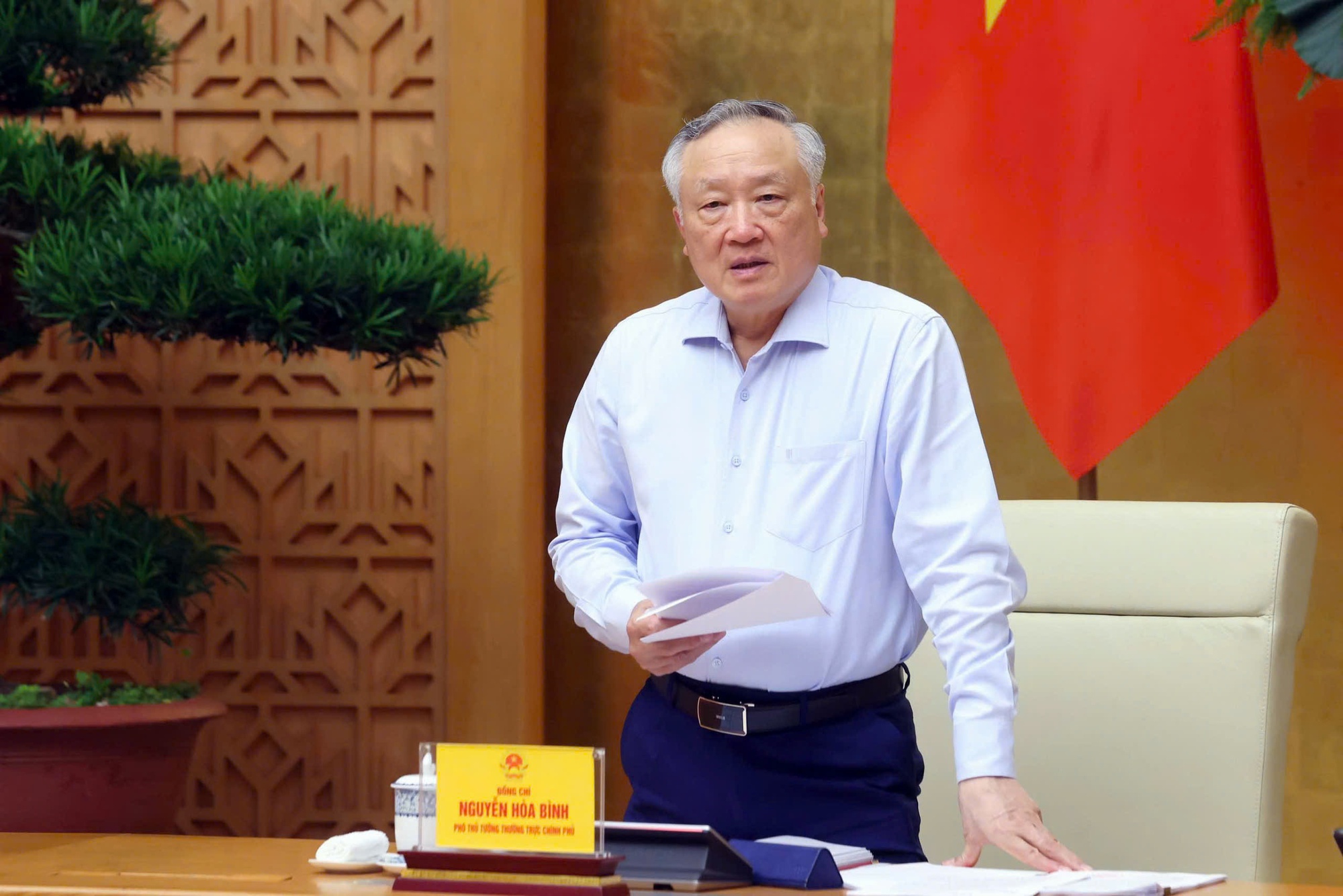
Permanent Deputy Prime Minister Nguyen Hoa Binh emphasized that the meeting agreed with the proposal to integrate 3 programs into 1 program - Photo: VGP/Nguyen Hoang
There is overlap in scope, objects and content between the 3 Programs.
In recent times, the implementation of national target programs has achieved many important results, positively contributing to the socio-economic development of the country. The national target program on new rural construction and the national target program on sustainable poverty reduction (2021-2025 period) have basically achieved and exceeded the goals and targets assigned by the National Assembly and the Government for the period 2021-2025. The national target program on socio-economic development in ethnic minority and mountainous areas for the period 2021-2030, phase I (2021-2025) has completed 6/9 groups of targets.
At the meeting, leaders of the Ministry of Ethnic Minorities and Religions and the Ministry of Agriculture and Environment reported on the overall assessment of the situation and results of the implementation of the 3 National Target Programs; reported on the review of the scope, objects, and overlapping investment content between the 3 Programs, and the remaining limitations, thereby proposing appropriate integration, consolidation, and consolidation plans to ensure effective use of capital and avoid overlap.
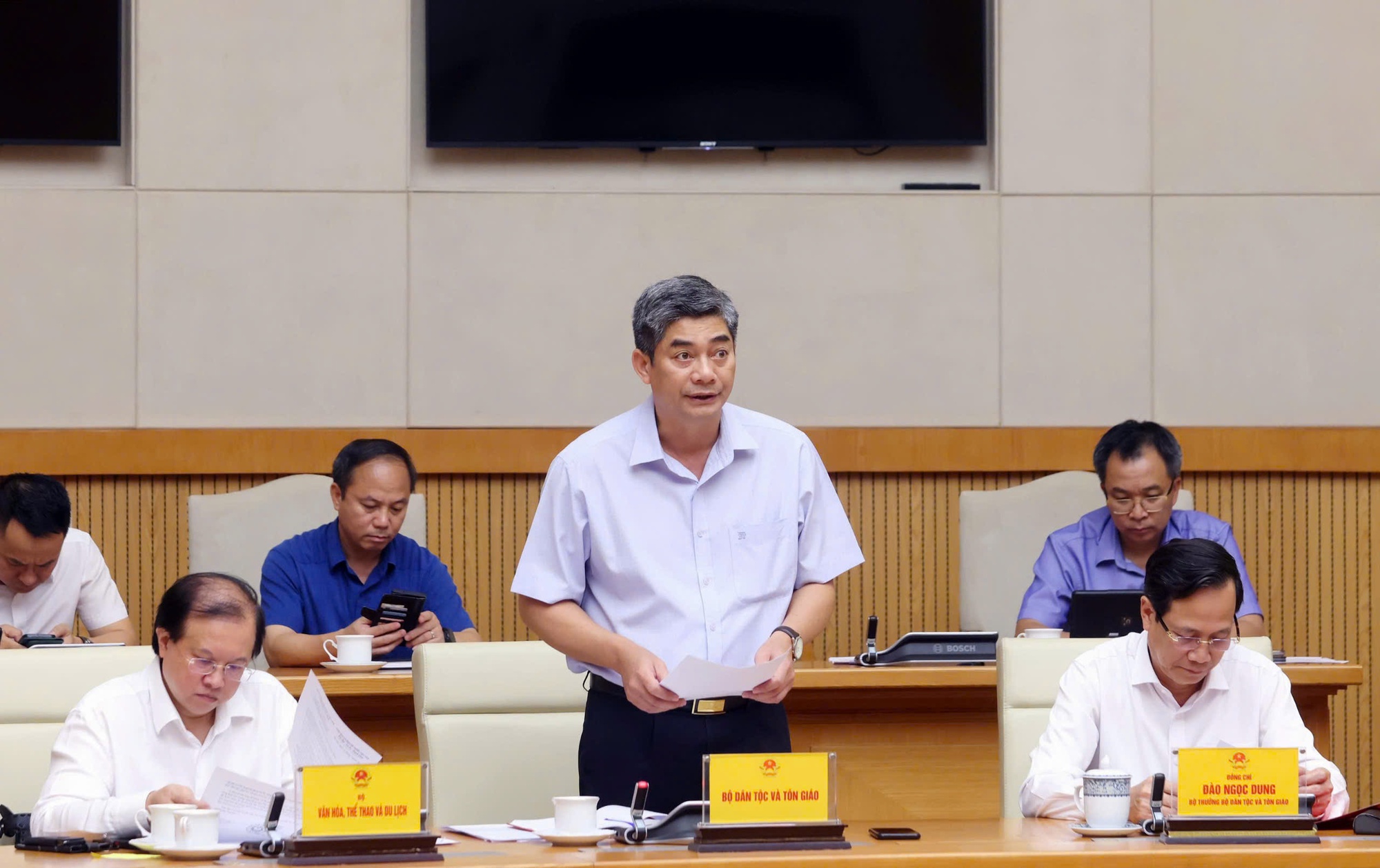
Deputy Minister of Ethnic Minorities and Religions Y Vinh Tor reports at the meeting - Photo: VGP/Nguyen Hoang
According to some delegates, in addition to the positive results achieved, in the process of implementing the programs, there are still shortcomings and inadequacies, including overlapping scope, objects and content between the Programs.
After reviewing the scope, beneficiaries, and program content of the three programs, the beneficiaries of the three programs are mountainous communes and poor ethnic minority areas. In terms of location, many mountainous ethnic minority communes are both rural and poor communes; infrastructure investment, livelihood support, and vocational training still overlap in content.
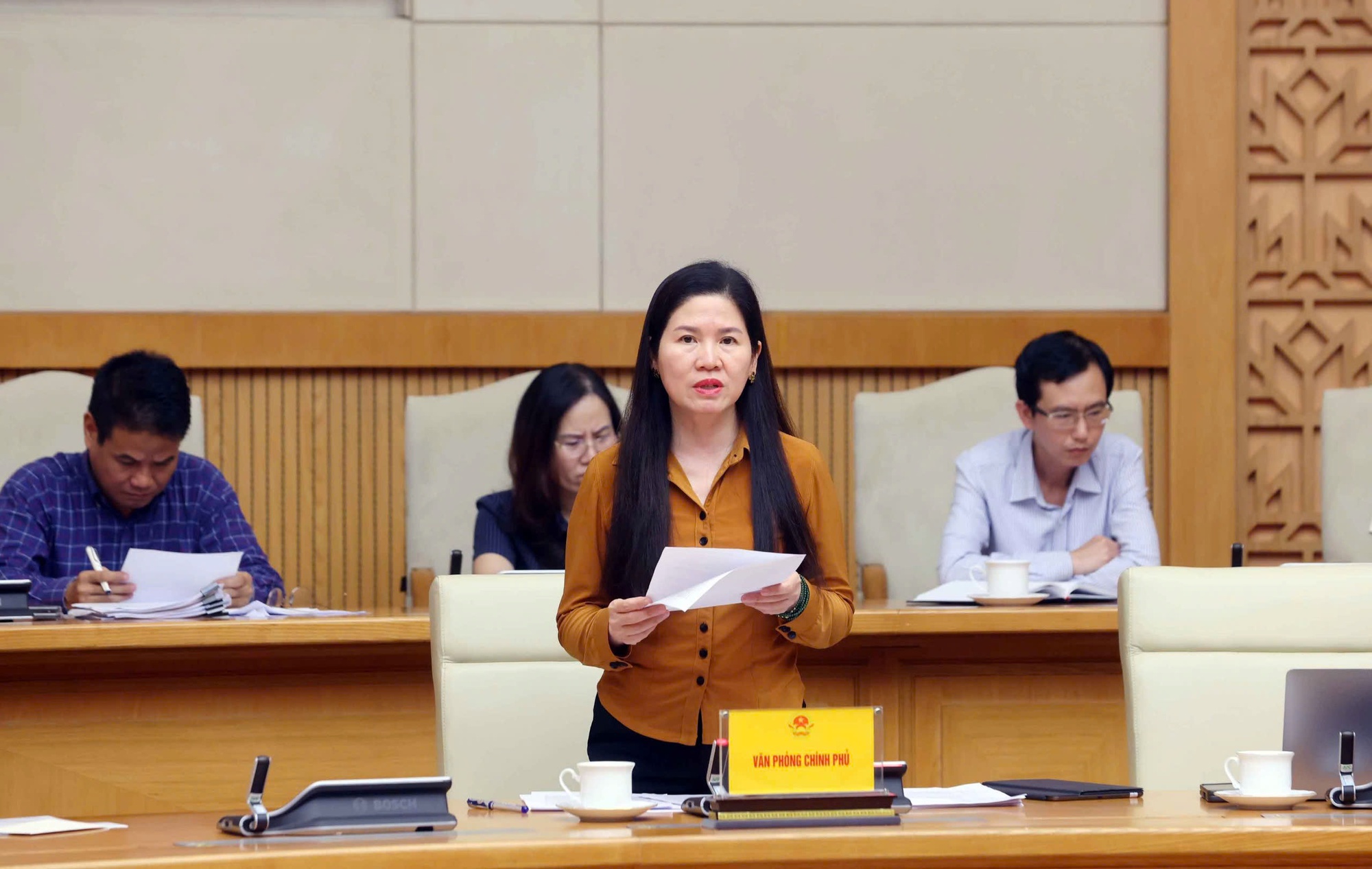
Deputy Head of the Government Office Mai Thi Thu Van speaks at the meeting - Photo: VGP/Nguyen Hoang
Therefore, the independent implementation of the 3 Programs in the past time encountered some difficulties and obstacles in the implementation process such as: Resources were dispersed, slow disbursement of public investment capital, localities (commune level) received many investment capital sources for infrastructure, causing difficulties in planning, reporting and mobilizing counterpart capital, causing overlap in management and supervision, making it difficult to evaluate the effectiveness of the Programs, reducing investment efficiency, and not taking advantage of the complementarity between the Programs.
Emphasizing that the contents of the 3 Programs are directly linked to rural development, livelihoods, infrastructure, the poor and improving the lives of rural mountainous areas. Therefore, some opinions believe that the integration and consolidation of the 3 Programs is appropriate, ensuring synchronization in management, integrating resources, improving investment efficiency, unifying criteria, investment mechanisms, monitoring and guidance processes, while limiting overlap and improving the efficiency of using public investment resources.
It should be done in the direction of reviewing and integrating related contents.
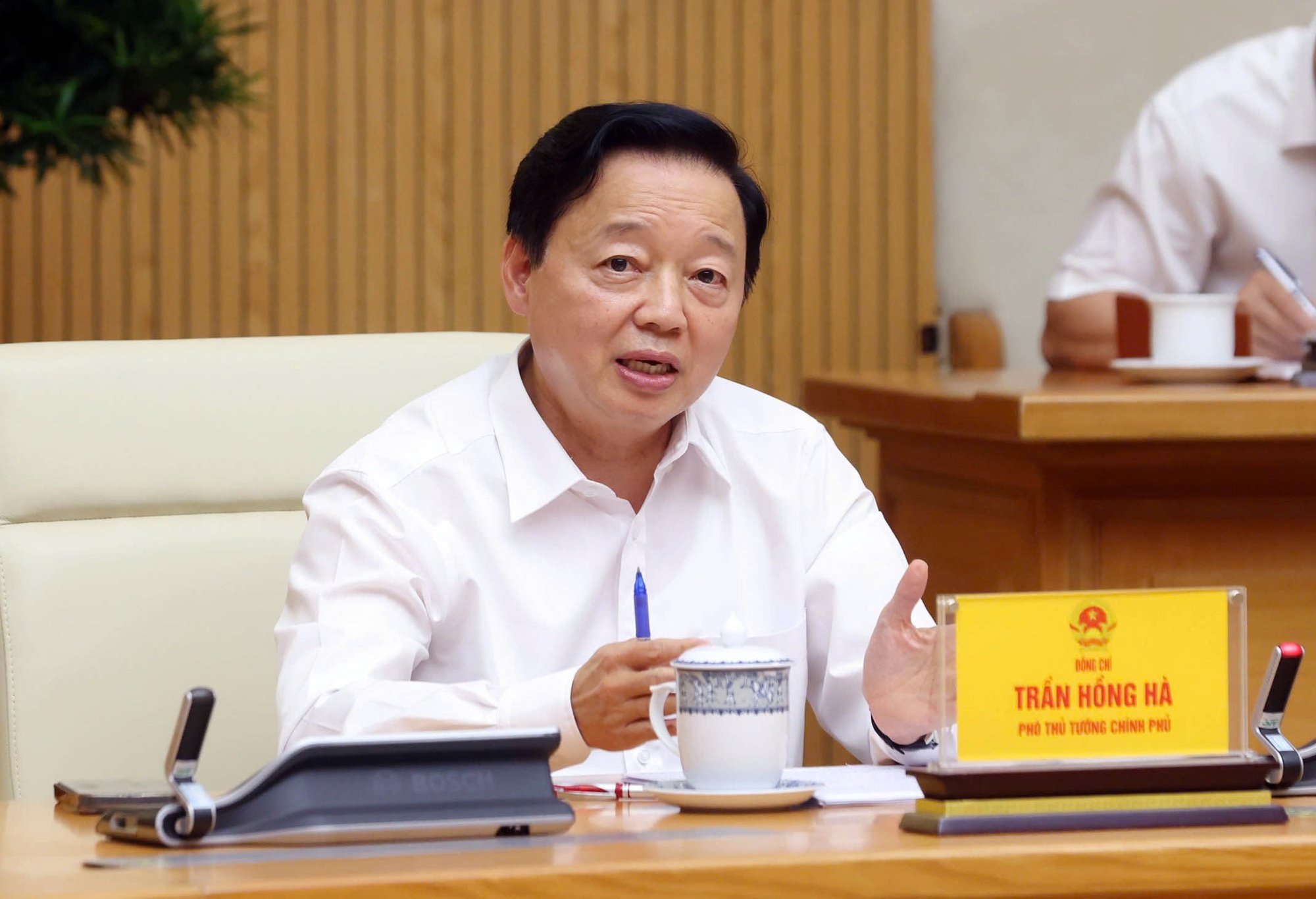
Deputy Prime Minister Tran Hong Ha proposed two implementation methods - Photo: VGP/Nguyen Hoang
According to Deputy Prime Minister Tran Hong Ha, current national target programs all target similar groups of people and locations, mainly rural, mountainous and ethnic minority areas, where the poverty rate is highest.
When approving three national target programs, the National Assembly requested clear identification of content, objects, and locations; at the same time, integrating policies and resources between programs, ensuring synchronous allocation, appropriate to the characteristics of ethnic minority and mountainous areas.
Therefore, the review and adjustment of national target programs needs to be carried out in the direction of reviewing and integrating related contents, especially in the fields of education, health, culture and sustainable poverty reduction, in which rural areas and ethnic minority areas must be given higher priority.
The Deputy Prime Minister proposed two ways of implementation. First, defining a number of common goals for all three programs, in which the national target program for sustainable poverty reduction is nationwide, while ethnic minority areas are given more priority. Second, clearly defining goals, tasks and decentralizing specific tasks to localities is a fundamental solution to overcome overlapping and fragmentation, improve the efficiency of public investment and ensure that national target programs achieve substantial and sustainable results. The central government focuses on issuing policies, inspecting, monitoring and evaluating results.
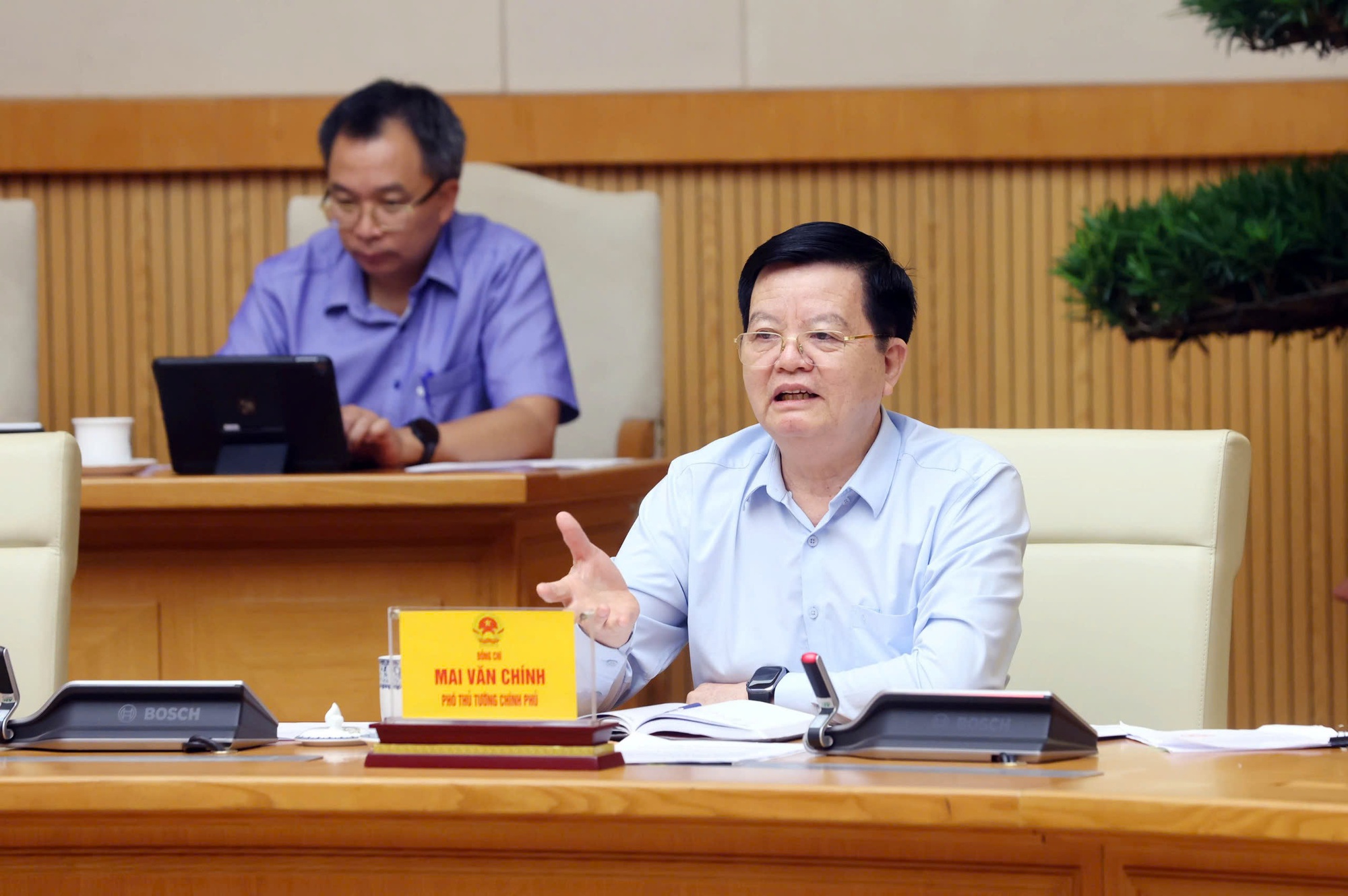
Deputy Prime Minister Mai Van Chinh expressed his agreement with the policy of integrating the programs into a new program - Photo: VGP/Nguyen Hoang
Deputy Prime Minister Mai Van Chinh expressed his agreement on the policy of integrating the programs into a new program, including the program for new rural development, poverty reduction, and the program for socio-economic development in ethnic minority and mountainous areas. This program will have a common goal, but will include two components: One component on new rural development and poverty reduction, and one component on ethnic minorities. In particular, ethnic minority and mountainous areas are areas with many limitations in infrastructure, socio-economics, and culture; some languages, customs, and material culture of the ethnic minorities are gradually fading away, so there needs to be specific policies and separate components for ethnic minority areas; at the same time, review and eliminate overlapping content with the new rural development and poverty reduction program, and retain specific elements, especially in culture.
Difficulties have been identified and clearly defined to have remedial measures.
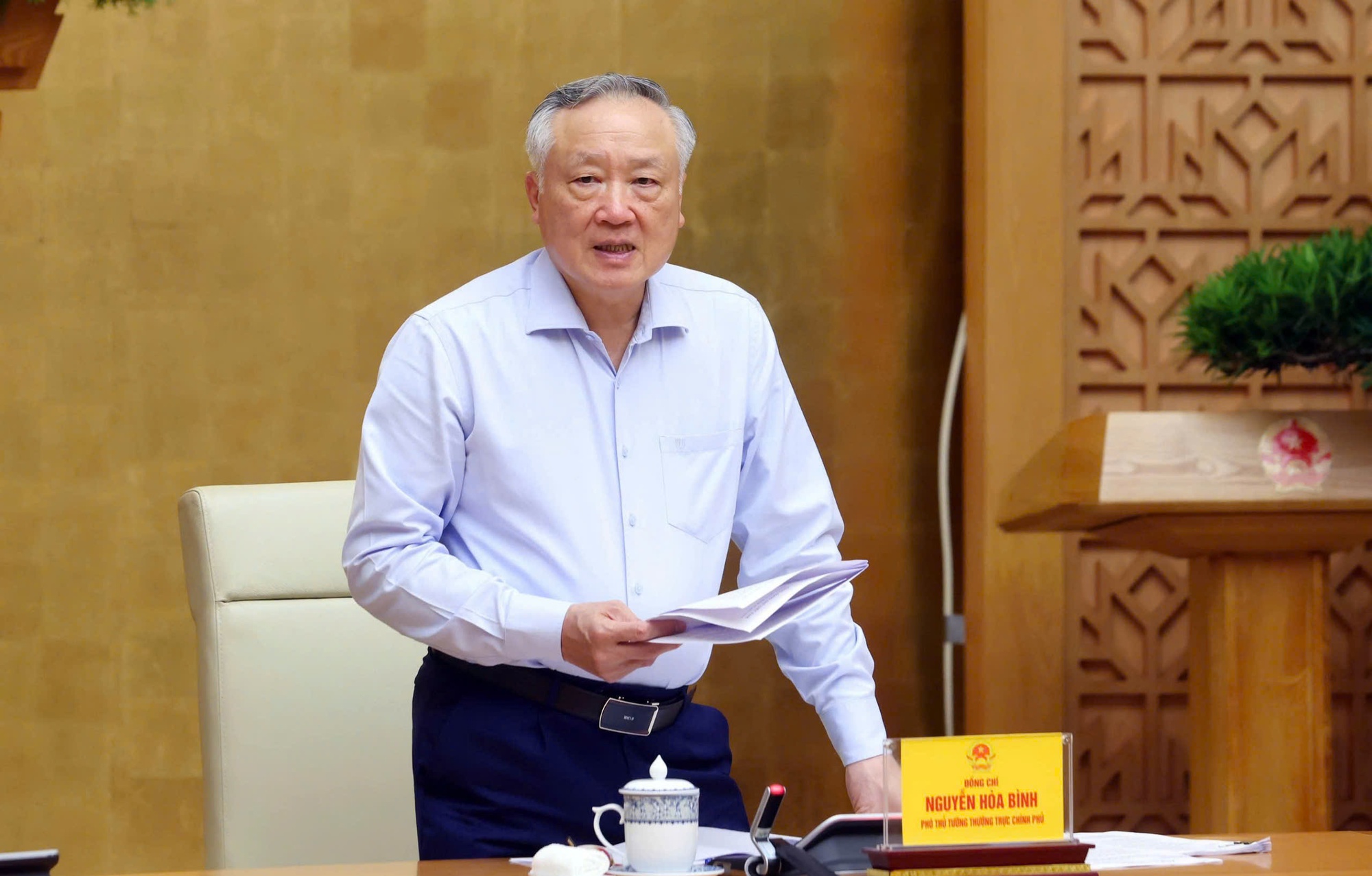
The Permanent Deputy Prime Minister stated that in the process of researching the proposed merger, there must be a thorough review of the contents of all three programs in particular and other target programs being built - Photo: VGP/Nguyen Hoang
Concluding the meeting, Deputy Prime Minister Nguyen Hoa Binh emphasized that the meeting agreed with the proposal to integrate 3 programs into 1 program, although it is known that there are still difficulties. Although there are difficulties in integration, the advantages are very large, many; the difficulties have also been identified and clearly defined to have measures to overcome them.
"The preparation work, proposal for merger and integration must be very methodical, elaborate, and quick, but must ensure quality to be submitted to superiors for consideration and decision," the First Deputy Prime Minister stated clearly, adding that in the process of researching and proposing merger, there must be a thorough review of the contents of all three programs in particular and other target programs being built; in the context of administrative boundaries and legal status of government levels having changed compared to before; there must be strong decentralization, delegation of power, and division of authority;...
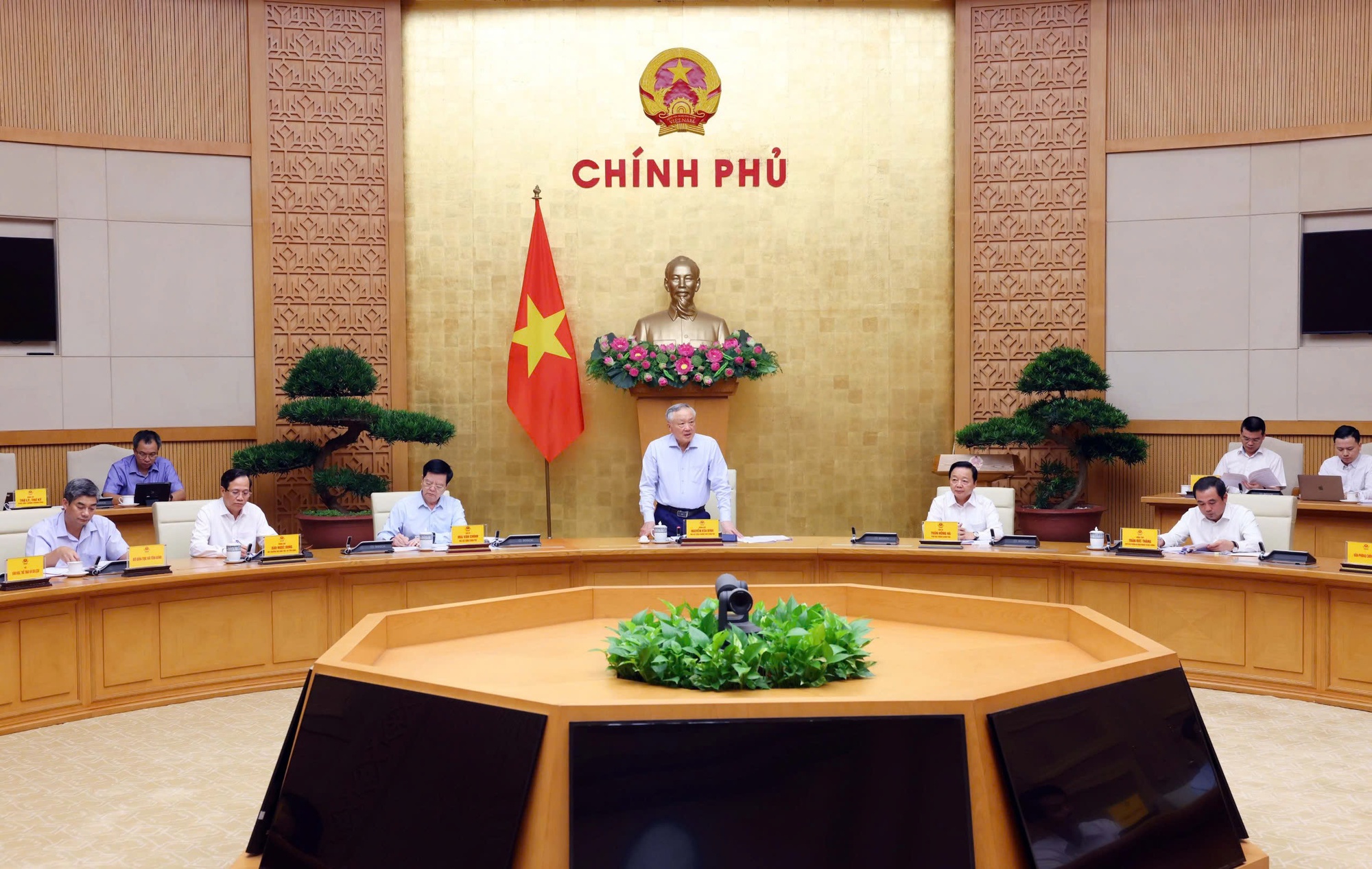
Deputy Prime Minister Nguyen Hoa Binh requested to maintain all goals, targets, and policies approved by the National Assembly for all three programs, with the duration extended until 2035 - Photo: VGP/Nguyen Hoang
Emphasize that the implementation of the 3 programs in the past has achieved very good and positive results. However, it is necessary to continue implementing the 2nd phase of the 3 programs.
Regarding the integration principle, Deputy Prime Minister Nguyen Hoa Binh requested to maintain all the goals, objects, and policies approved by the National Assembly for all 3 programs, with a duration of up to 2035; only address overlapping issues between the 3 programs, remove any overlapping content, keep the rest intact, and the new program does not have to be rebuilt or re-approved from the beginning, but has 2 components. The steering agencies of the 3 programs are the Government and participating ministries; the Ministry of Finance is the general focal point...
Source: https://vtv.vn/thong-nhat-voi-de-xuat-tich-hop-3-chuong-trinh-muc-tieu-quoc-gia-100251015171617493.htm






![[Photo] Nhan Dan Newspaper launches “Fatherland in the Heart: The Concert Film”](https://vphoto.vietnam.vn/thumb/1200x675/vietnam/resource/IMAGE/2025/10/16/1760622132545_thiet-ke-chua-co-ten-36-png.webp)
![[Photo] General Secretary To Lam attends the 18th Hanoi Party Congress, term 2025-2030](https://vphoto.vietnam.vn/thumb/1200x675/vietnam/resource/IMAGE/2025/10/16/1760581023342_cover-0367-jpg.webp)
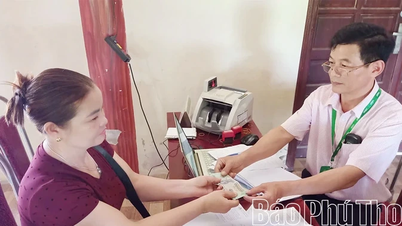

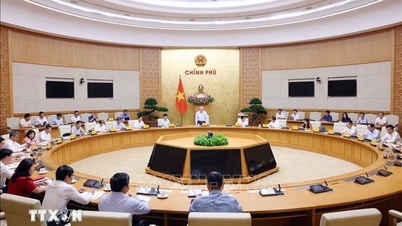

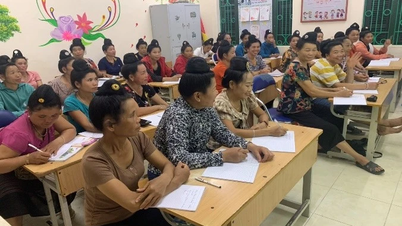

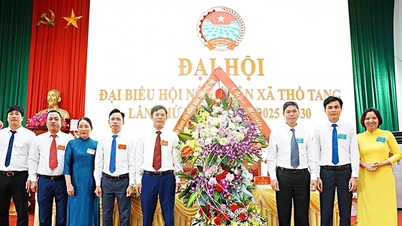
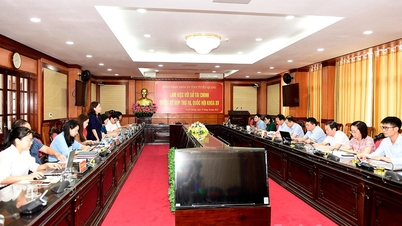





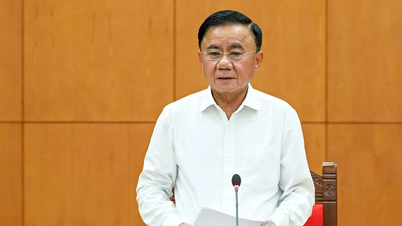

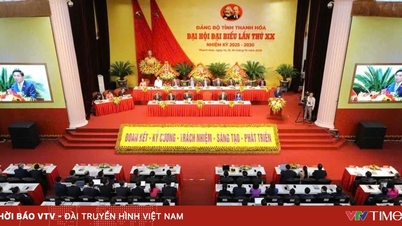
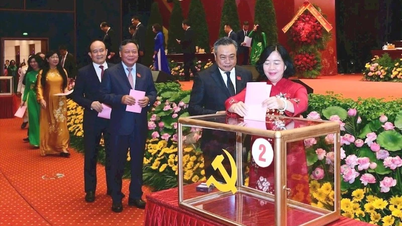








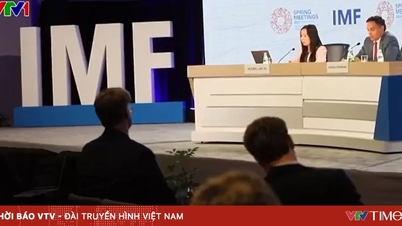











![[Video] TripAdvisor honors many famous attractions of Ninh Binh](https://vphoto.vietnam.vn/thumb/402x226/vietnam/resource/IMAGE/2025/10/16/1760574721908_vinh-danh-ninh-binh-7368-jpg.webp)


























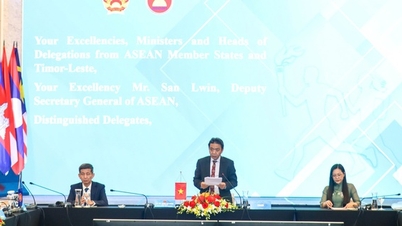

![[Photo] Nhan Dan Newspaper launches “Fatherland in the Heart: The Concert Film”](https://vphoto.vietnam.vn/thumb/402x226/vietnam/resource/IMAGE/2025/10/16/1760622132545_thiet-ke-chua-co-ten-36-png.webp)

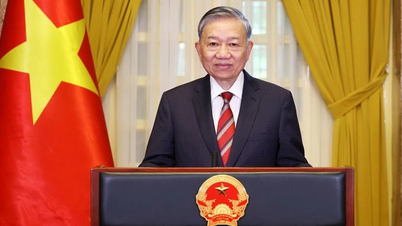





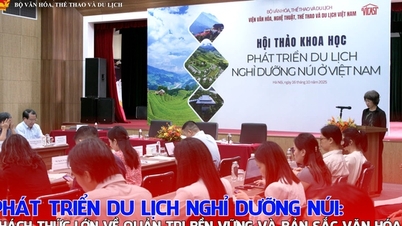
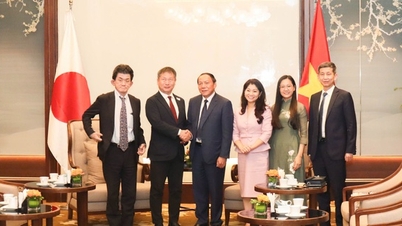
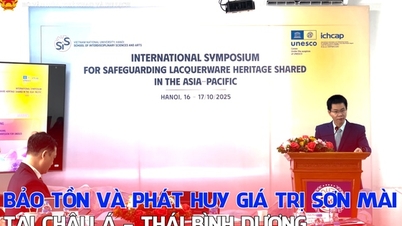

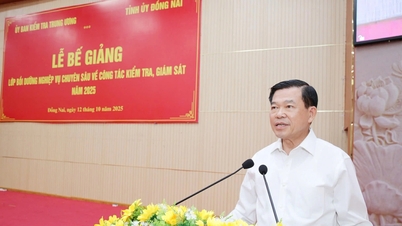



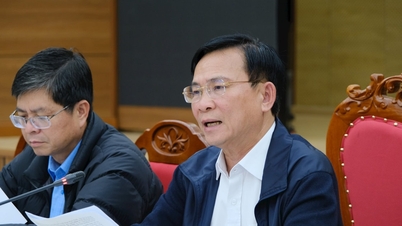
























Comment (0)